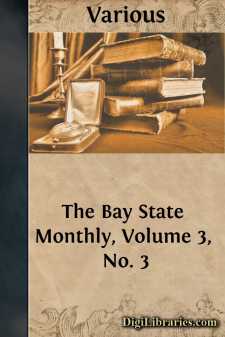Categories
- Antiques & Collectibles 13
- Architecture 36
- Art 48
- Bibles 22
- Biography & Autobiography 816
- Body, Mind & Spirit 145
- Business & Economics 28
- Children's Books 17
- Children's Fiction 14
- Computers 4
- Cooking 94
- Crafts & Hobbies 4
- Drama 346
- Education 58
- Family & Relationships 59
- Fiction 11834
- Foreign Language Study 3
- Games 19
- Gardening 17
- Health & Fitness 34
- History 1378
- House & Home 1
- Humor 147
- Juvenile Fiction 1873
- Juvenile Nonfiction 202
- Language Arts & Disciplines 89
- Law 16
- Literary Collections 686
- Literary Criticism 179
- Mathematics 13
- Medical 41
- Music 40
- Nature 179
- Non-Classifiable 1768
- Performing Arts 7
- Periodicals 1453
- Philosophy 66
- Photography 2
- Poetry 897
- Political Science 203
- Psychology 45
- Reference 154
- Religion 516
- Science 126
- Self-Help 85
- Social Science 82
- Sports & Recreation 34
- Study Aids 3
- Technology & Engineering 59
- Transportation 23
- Travel 463
- True Crime 29
Our website is made possible by displaying online advertisements to our visitors.
Please consider supporting us by disabling your ad blocker.
The Bay State Monthly, Volume 3, No. 3
by: Various
Categories:
Description:
Excerpt
JOHN ALBION ANDREW.
THE "WAR-GOVERNOR" OF MASSACHUSETTS.
John Albion Andrew, the twenty-first Governor of Massachusetts, was born, May 31, 1818, at Windham, a small town near Portland, Maine. His father was Jonathan Andrew, who had established himself in Windham as a small trader; his mother was Nancy Green Pierce, of New Hampshire, who was a teacher in the celebrated academy at Fryeburg, where Daniel Webster was once employed in the same capacity.
Jonathan is described as having been "a quiet, reticent man, of much intelligence and a keen perception of the ludicrous," while his wife was "well educated, with great sweetness of temper, and altogether highly prepossessing in appearance." There never was a more united and happy family. The father possessed ample means for their education, and left his household to the good management of his wife, who was admirable in her domestic arrangements, judicious, sensible, energetic, and a rigid disciplinarian of her children. There was a rare union of gentleness and force in this woman, which made her generally attractive, and especially endeared her to all who came under the influence of her character.
Mrs. Andrew died on the 7th of March, 1832. Shortly afterwards the husband sold out his property in Windham and removed to a farm in Boxford, in the county where he was born. He died in September, 1849.
John Albion, the oldest son, entered Bowdoin College in 1833, where he pursued a course in no way remarkable. He was a studious youth, applied himself closely to his books, and appeared to take no lively interest in athletic sports. Notwithstanding his studiousness, he was ranked among the lowest of his class, and was allotted no part at Commencement. Among his fellows he was, however, exceedingly popular, and his happy temperament, his genial nature, won him friendship which after years only made stronger and more enduring.
After his graduation the young man came to Boston and entered the office of the late Henry H. Fuller, as a student of law. The attraction between him and young Andrew was mutual, and they became almost like brothers. It was while serving his novitiate under Mr. Fuller that Andrew became interested in many of the reform movements of the day, and was as firm and peculiar in one direction as his friend was in another.
Andrew rose slowly at the bar. To his clients he simply did his duty, and that was all. He was not a learned lawyer, nor was he in any sense a great lawyer, and yet he expended great care and industry in looking up his cases, and probably never lost a client who had once employed him. We are told by one of his biographers that, "during all these years he was not what was called a student, but was never idle." He entered largely into the moral questions of that day; was greatly interested in the preaching of James Freeman Clarke; a constant attendant at meeting and the Bible-classes. Occasional lay-preaching being the custom of that church, young Andrew sometimes occupied the pulpit and conducted the services to the general acceptance of the people....












